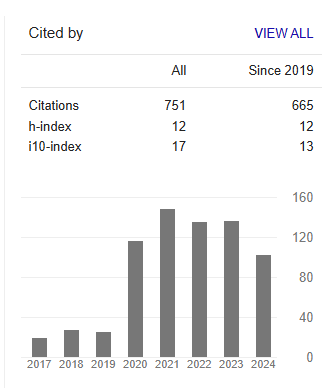Evaluation of the Quality of Prescription of Antibiotics with Curative Intent in a Specialized Department in Dakar, Senegal
Abstract
NM Dia, YZ Ismail, NA Lakhe, BM Diop and M Seydi
Background: Wide prescription and misuse of antibiotics have led to the emergence of resistant bacteria. The evaluation of professional practices is a way of contributing to the improvement of prescription. Our work aimed at assessing the quality of antibiotics prescription with curative intent in a clinic of infectious diseases in Dakar with reference to national recommendations.
Methods: A observational study was conducted from April 2 to July 2, 2012 based on the records of all hospitalized patients, aged 15 and above, having received antibiotic therapy with curative intent. The quality of the prescription was evaluated according to the national recommendations of PRONALIN which served as a reference. Thus two levels of appreciation, appropriate and inappropriate were used.
Results: During the period from 02/04/2012 to 02/07/2012, 170 patients received antibiotic therapy (53.79%), among whom 267 antibiotic prescriptions were made. Monotherapy was received by 57.70% of patients. The most prescribed antibiotic family was β-lactams (55.43%). Antibiotic therapy was probabilistic in 155 (91.18%) prescriptions. Compliance rate of antibiotic prescription to national recommendations was 74.7%. The prescriptions according to the molecules were appropriate in 97.37% of the cases. Dosages were adequate in the majority of prescriptions (90.63%). The routes of administration were observed for almost all of molecules (98.87%). The duration of treatment was not appropriate in 119 cases (44.56%). Only 15.9% of antibiotic therapy was assessed at 48 hours.
Conclusion: Compliance rate of antibiotic prescription to national recommendations was 74.7% in this infectious disease department of Dakar mainly due to unfulfilled treatment times and the lack of evaluation of antibiotic therapy after 48 hours of administration. Although the prescription of antibiotics in this clinic specializing in infectious diseases remains good, the emphasis should be on regular training of health workers and on better dissemination of national guidelines.



